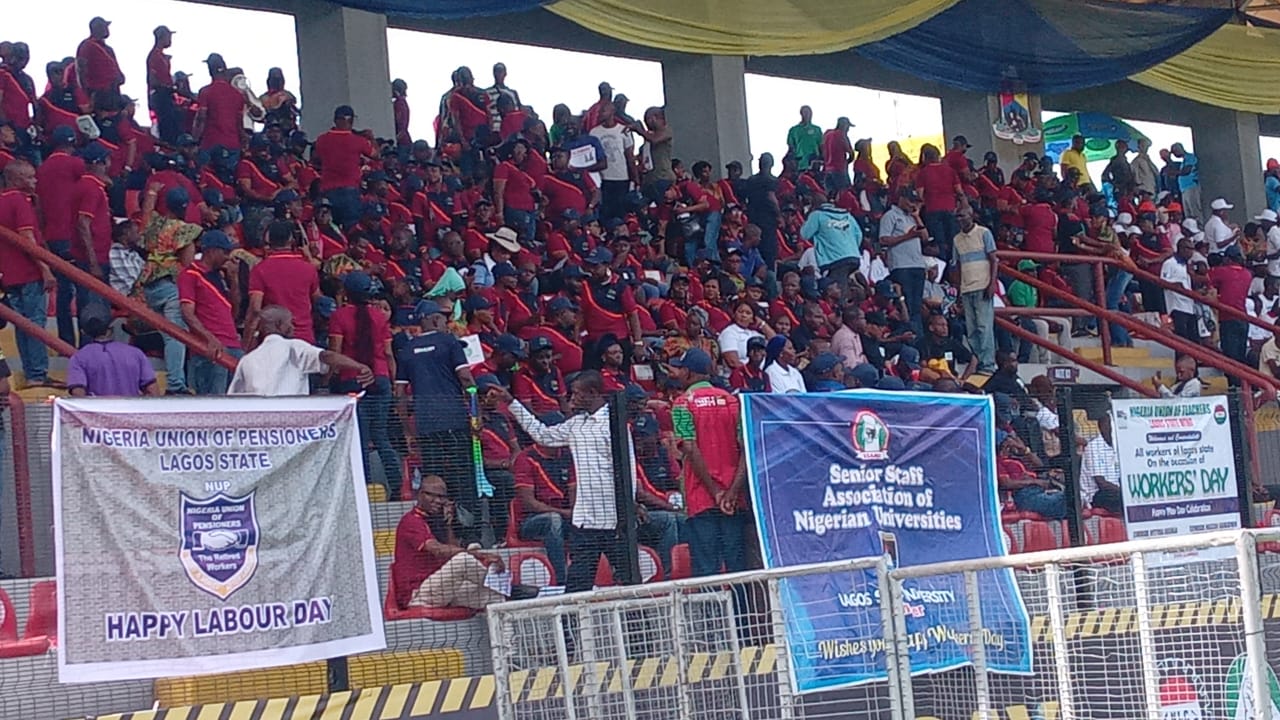In many countries of the world, including Nigeria, every May 1 is earmarked for celebrating the importance of workers, their struggles and commitment to the nation building.
Also, known as May Day or International Labour Day, the event is explored to reinforce the workers’ rights and the need to protect them from exploitation.
Like every other country, Nigeria under successive governments has had its fair share of crises stemming from workers’ agitations for better working conditions. This year’s occasion marks the last under the two-term administration of President Muhammadu Buhari.
Daily Trust highlights some of the major labour crises Buhari’s government, which was inaugurated on May 29, 2015, has contended with for almost eight years.
FG makes u-turn, approves Eagle Square for Workers Day celebration
FG declares Monday public holiday to mark Workers’ Day
PROTRACTED ASUU STRIKE
The recurrent industrial action by the Academic Staff Union of Universities (ASUU) is as old as the Nigerian democracy. Since Nigeria’s return to democracy in 1999, ASUU has gone on strike for a record 16 times, spending an accumulated period of about four-and-a-half years – a period long enough to complete four-year degree programmes.
ASUU, among others, is demanding adequate funding for the revitalisation of public universities, payment of earned academic allowances, use of University Transparency and Accountability Solution (UTAS) as a platform for paying university staff, instead of the Integrated Payroll and Personnel Information System (IPPIS) preferred by the government.
So far during President Buhari-led administration, the union has gone on strike five times, running into 670 days – about one year and 10 months.
In November 2016, ASUU went on strike for one week, but later suspended it. The association went on another strike from August 14, 2017 to September 18. On November 4, 2018, the union began another strike which ended on February 7, 2019.
On March 9, 2020, ASUU went on a two-week warning strike which transmuted to a full-blown action that lasted till December 23. The last strike lingered for over four eight months, from February 14, 2022 to October 14, 2022.
DOCTORS’ STRIKE
Strike by Nigerian doctors under the aegis of the National Association of Resident Doctors (NARD) is another labour crisis the current administration has grappled with. In the middle of COVID-19 pandemic, the doctors went on strike for 64 days, starting from August 2, 2021.
Some of the NARD’s demands include payment of the Medical Residency Training Fund (MRTF), payment of outstanding salaries to its members on GIFMIS platform, death benefits for doctors who died in the line of duty during the pandemic.
On Tuesday, January 10, 2023, the association threatened to go on a nationwide strike if the federal government failed to meet its demands.
In a letter signed by its president, Innocent Orji, and addressed to Minister of Health, Osagie Ehanire, NARD said it had issued an ultimatum to the federal government six months ago on account of issues such as irregularities in the new circular on upward review of the MRTF.
Other concerns raised by the association include “outstanding payment of the arrears of the new hazard allowance, non-payment of the skipping arrears for 2014, 2015 and 2016, and non-payment of the consequential adjustment of minimum wage to some of our members”.
The association also cited issues such as delay in the upward review of the consolidated medical salary structure (CONMESS), salary arrears of members in state tertiary health institutions, and non-domestication of the medical residency training act (MRTA) in most states.
NARD commended the government for resolving some of the issues but said many of them remain largely unresolved and had become sources of serious nationwide agitation.
INDUSTRIAL ACTION IN OIL SECTOR
In January 2017, the Nigeria Union of Petroleum and Natural Gas Workers (NUPENG), embarked on a three-day warning strike over casualisation and non-implementation of collective agreement in the oil and gas sector in the country.
The strike was, however, suspended after a deal was reached with the government, international oil companies (IOCs), and other stakeholders in the industry over the issues through the intervention of the Minister of Labour, Dr Chris Ngige. Afterwards, the union has threatened to go on strike a couple of times as a result of demands bordering workers’ welfare, among other issues.
Also, in July 2016, the Petroleum and Natural Gas Senior Staff Association of Nigeria (PENGASSAN) went on a one-week nationwide strike over the implementation of the 2015 Collective Bargaining Agreement between the federal government and the union as well as NUPENG.
AVIATION WORKERS’ STRIKE
Last month, aviation workers under the National Union of Air Transport Employees (NUATE), Air Transport Services Senior Staff Association of Nigeria (ATSSSAN), the National Association of Aircraft Pilots and Engineers (NAAPE) and the Association of Nigerian Aviation Professionals (ANAP) embarked on a two-day warning strike, which disrupted activities in the sector.
Members of the unions blocked entrance to the Murtala Muhammad Airport domestic terminal, leaving many passengers stranded.
They are demanding, among others, that the planned demolition of aviation agencies’ headquarters in Lagos be halted while also advocating the implementation of conditions of service signed with staff of the aviation agencies.
But the Minister of Aviation, Hadi Sirika, described the strike action as unnecessary and unfounded, saying the federal government had made efforts to meet the various demands of the workers.
“The strike is unnecessary as it will increase the hardship on our citizens, affect flight schedules, lead to economic losses and negatively impact on our rating globally. On the grievances prompting the strike by the unions, these are issues that should not lead to strike,” the minister said in a statement.

 Join Daily Trust WhatsApp Community For Quick Access To News and Happenings Around You.
Join Daily Trust WhatsApp Community For Quick Access To News and Happenings Around You.

